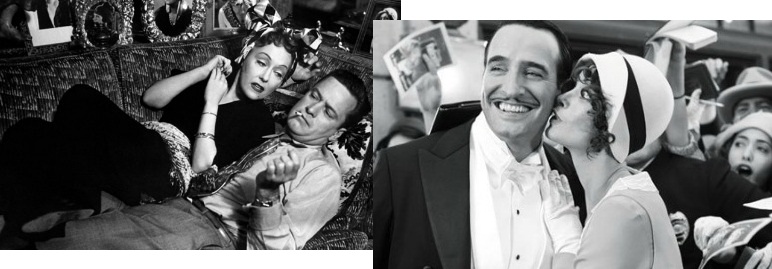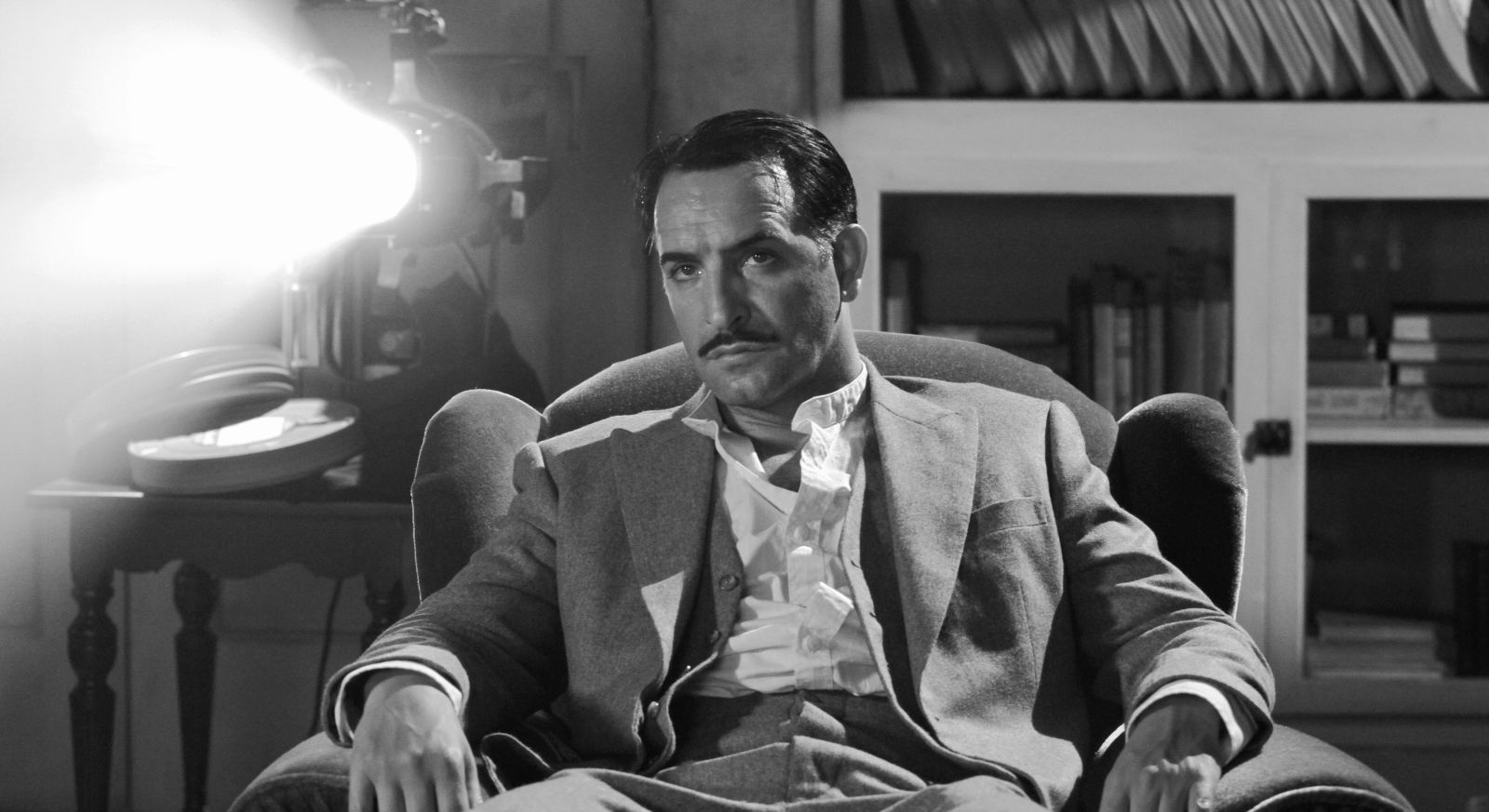Robert here w/ Distant Relatives, exploring the connections between one classic and one contemporary film.

How does one begin to discuss The Artist in terms of just one distant relative? The film is a paean to all films silent-era Hollywood and enough films stretching far beyond the silent-era including Singin' in the Rain and A Star is Born, to which it owes story elements, Citizen Kane from which it borrows specific conceits and Vertigo... well, we'll leave that one alone. But I think the connection that intrigues me the most is notable not for what the two films have in common, but in how they differ.
The Artist tells the story of dashing silent film actor George Valentin and his fall from grace juxtaposed against rising talkie star Peppy Miller who, in a cruel twist of fate, is an ingenue he discovered. Sunset Blvd enters the world of former silents star Norma Desmond as discovered by aspiring screenwriter Joe Gillis, a world overgrown with bitterness, denial and impending senility.

Sunset Blvd is in a way the anti-Artist. If you started with one similar concept and gave the script to a half-glass-full director and a half-glass-empty director, you'd quite possibly end up with The Artist and Sunset Blvd. The similarities are obvious enough. Both films are about silent stars whose downfalls hasten when "words, words, words" make their way into motion pictures, soon making them quite irrelevant. George Valentin and Norma Desmond suffer the same fate, and the requisite eventual drinking and depression. The only difference is, Norma's "savior" finds her many years too late.
I use the term "savior" pretty liberally here, since this is where the films' paths really start to diverge. Peppy and Joe have enough in common. They're young. They're attractive. They're eager to make it into show business. And they have the one thing that Valentin and Desmond do not: potential. Now keep in mind, that's only true as defined by their genres. In a film noir, potential is a hack and a cynic stumbling into a good idea. In a feel-good film it's the rise of a dreamer.
However, these two have polarized motives. Gillis (our hero mind you) is in it for himself. He's using Norma's help to propel his success. Peppy quite contrarily is using her success to help George. And herein lies the reason these films reach their different conclusions, not to mention the reason why one of them is on it way to the Best Picture Oscar while the other didn't win the prize.

It's about appreciation. Peppy appreciates the classics, the silents, the stars. She loves them as we love them. And as our hero (if we can call her that since Valentin doesn't do anything active to save himself) this love propels her to be one of the most decent, morally unimpeachable movie characters in recent years. And then there's Joe. Joe Gillis doesn't care, and vicariously through him, nor do we, and even further than that Sunset Blvd suggests that very few do, and nowhere included in that few is anyone in show business. It's a dark, cynical accusation that no one cares about the old "wax museum" of stars whose talent built up the picture business. It's a sentiment that's not particularly easy to vote for even if it happens to lead a film that is both brilliant and in many ways, honest.
Which makes me wonder, has much changed since 1950? Certainly we now have home video, we have streaming and the internet. The brilliance of the slient era is more accessible than it's ever been, and that allows for a sizable fanbase. And what about within the world of The Artist? Valentin's discovery of Peppy originally seems like a spoonfull of irony but turns out to be uplifting cinematic karma. If she were not there to save him, would anybody? Would Valentin end up just like Norma Desmond? Would The Artist become a cautionary tale instead of an inspirational one?
The Artist was made in 2011 and takes place in the late twenties, early thirties. Sunset Blvd was made in 1950 and takes place in 1950. Therein may lie the ultimate clue to why these very similar films reach very different conclusions. Nostalgia is always inspirational. Reality, not so much.